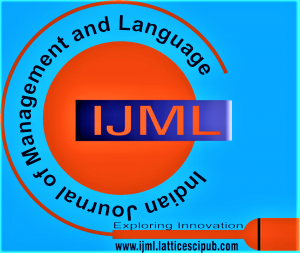![]()
Digitalization and Transformation of the Higher Education System in India Through the New Education Policy 2020 for Enhanced Quality Education
Meenu Sharma
Prof. (Dr.) Meenu Sharma, Department of Public Administration, The Assam Royal Global University, Guwahati (Assam), India.
Manuscript received on 07 August 2025 | First Revised Manuscript received on 14 August 2025 | Second Revised Manuscript received on 19 September 2025 | Manuscript Accepted on 15 October 2025 | Manuscript published on 30 October 2025 | PP: 19-28 | Volume-5 Issue-2, October 2025 | Retrieval Number: 100.1/ijml.B209805021025 | DOI: 10.54105/ijml.B2098.05021025
Open Access | Editorial and Publishing Policies | Cite | Zenodo | OJS | Indexing and Abstracting
© The Authors. Published by Lattice Science Publication (LSP). This is an open-access article under the CC-BY-NC-ND license (http://creativecommons.org/licenses/by-nc-nd/4.0/)
Abstract: The National Education Policy (NEP) 2020 outlines a plan for overhauling the Indian educational system, with a focus on experiential learning, integration of technology, and holistic development. According to NEP 2020, a holistic and multimodal education would seek to integrate the development of all human capacities, including intellectual, artistic, social, physical, emotional, and moral. The development of humanistic, ethical, constitutional, and universal human values—such as truth (Satya), righteous behavior (dharma), peace (shanti), love (prem), nonviolence (ahimsa), scientific temper, citizenship values, and life skills—as well as lessons in seva/service and community service programs are all considered essential components of value-based education. The objectives of this paper are to find out about initiatives for digitization in educational institutions, examine the effects of the New Education Policy 2020 on higher education, and highlight the changes in India’s higher education system. The data is collected through a structured questionnaire served to students and faculty in universities and colleges in the states of Assam, Meghalaya, Nagaland, and Arunachal Pradesh. A primary tool, a structured questionnaire, was administered to 350 students and 150 teachers from colleges and universities.
Keywords: Digitalization, Transformation, NEP2020, Quality Education, Value Added Education, Skill enhancement, Multidisciplinary Education, Experiential Learning.
Scope of the Article: Impact of Technology on Languages
